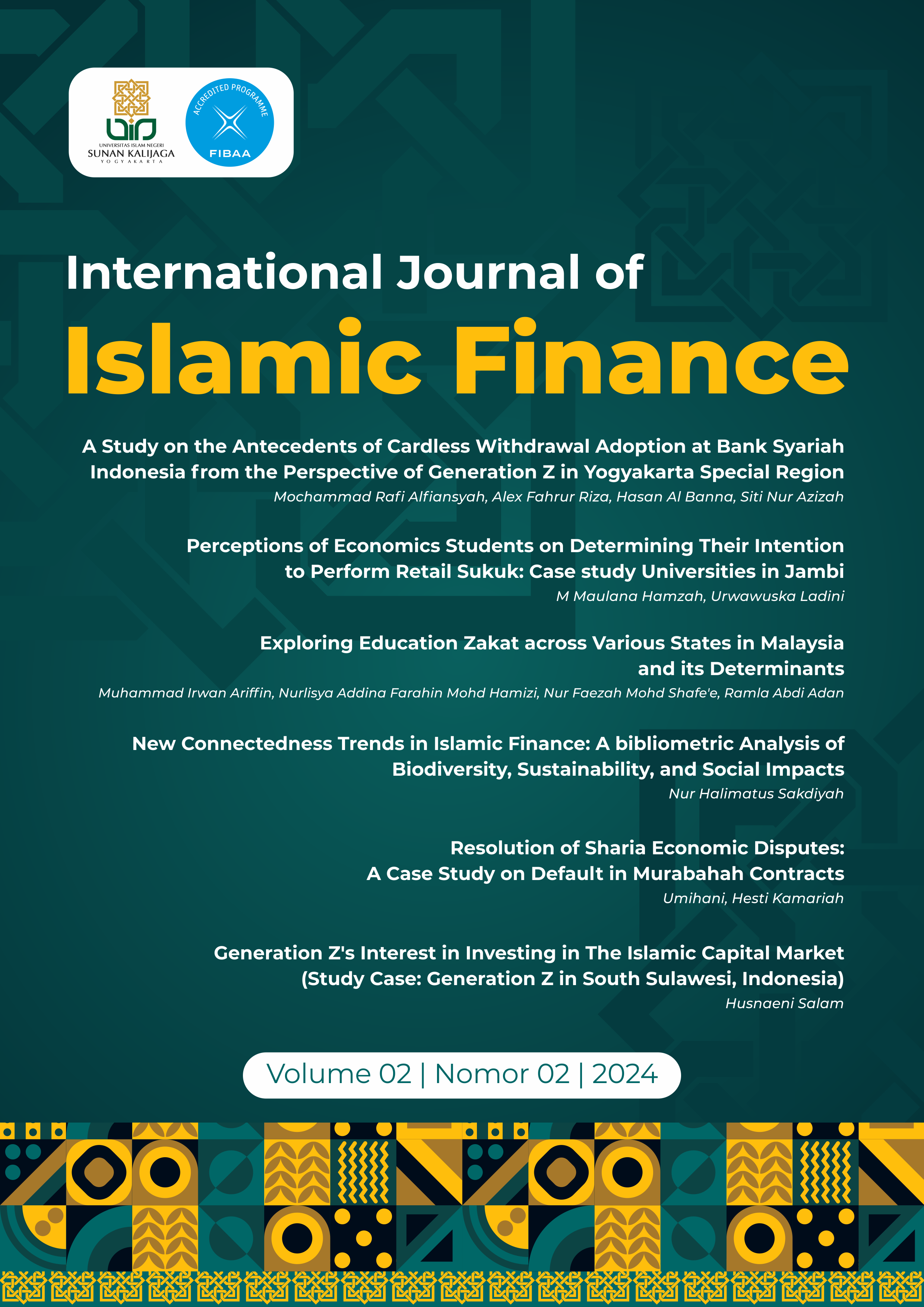Generation Z's Interest in Investing in The Islamic Capital Market (Study Case: Generation Z in South Sulawesi, Indonesia)
DOI:
https://doi.org/10.14421/ijif.v2i2.2324Keywords:
Investment, Investment Interest, Islamic Capital Market, Investment KnowledgeAbstract
Background: Indonesian government has made efforts to develop the sharia capital market so that the sharia financial market in Indonesia continues to grow rapidly as in previous years. The intended strategies include developing sharia capital market products, strengthening and developing sharia capital market infrastructure, increasing literacy and financial inclusion of the sharia capital market, and strengthening synergy with stakeholders. From an Islamic perspective, investment is also considered something important and recommended. Investments made by a Muslim are expected to be a form of effort in seeking Allah's pleasure and fulfilling their needs as social beings on this earth. Investment in this case is certainly an investment activity that does not conflict with Islamic law. However, based on the Sharia Capital Market Update for the June 2022 period, the number of SID recorded for ownership of sharia mutual funds, corporate sukuk and sharia shares was only 2,455,239 SID (ojk.go.id). This number is relatively small when compared to the total number of SIDs in the capital market which reached 10,000,628 in the November 2022 period (ksei.co.id). In fact, Indonesia is one of the countries with a majority Muslim population. Based on data from the Directorate General of Population and Civil Registration of the Ministry of Home Affairs, it states that 86.88% are Muslim.
Objectives: The research aims must be clearly explained. This research will focus on the generation Z which currently dominates the community as a research object, especially those domiciled in South Sulawesi Province. Sulawesi Province is in eighth position as the province with the largest number of SIDs in the July 2023 period in Indonesia and is the province with the largest number of SIDs in Eastern Indonesia. Where eastern Indonesia includes the islands of Sulawesi, the Maluku Islands, the Nusa Tenggara Islands, Bali and Papua. However, the number of SIDs in South Sulawesi only reached 3% of the total population in South Sulawesi in June 2023 which was 9,312,019.
Novelty: Based on several previous studies, it can be seen that there will be inconsistent findings. Therefore, researchers want to conduct research related to investment interest as an endogenous variable and use investment knowledge, Sharia financial literacy, and investment motivation as exogenous variables. In addition, researchers use financial self-efficacy as a moderating variable to see its effect on the relationship between exogenous and endogenous variables.
Research Methodology/Design: This research is a type of quantitative research, using a survey method through a questionnaire containing questions/indicators. The population of this research is generation Z in South Sulawesi province. This study will use Partial Least Squares Structural Equation Modeling (PLS-SEM).
Findings: The results showed that Islamic financial literacy and investment motivation partially affect investment interest. However, investment knowledge was found to have no effect on investment interest in the Islamic capital market. Meanwhile, financial self-efficacy moderates the relationship between investment knowledge and Islamic financial literacy on investment interest, but financial self-efficacy does not moderate the relationship between investment motivation and investment interest.
Implication: For future researchers, it is expected to use a larger number of samples in order to represent the entire population and produce more accurate research results, as well as look for other more specific variables, which may affect investment interest in the Islamic capital market.





